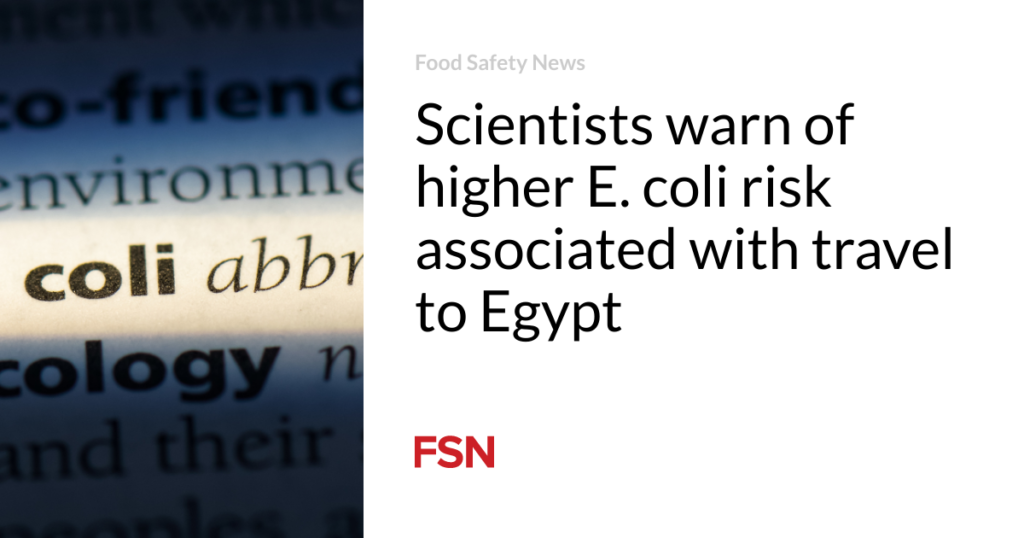An analysis by Italian researchers suggests that there is an increased risk of contracting E. coli after traveling to Egypt.
In 2023, there were several cases of bloody diarrhea due to Shiga toxin-producing E. coli (STEC) infection among children and people under the age of 18 who had returned from vacation.
There have also been some reported cases of hemolytic uremic syndrome (HUS), a severe complication of E. coli infection that can lead to kidney failure.
Researchers in the journal Eurosurveillance said investigations were needed to identify the source of the outbreak before effective preventative measures could be implemented.
The study included all children and adolescents with bloody stools and STEC infection identified by the surveillance system in Northern Italy in 2023. The researchers interviewed the children’s families and sent them a questionnaire about recent international travel, with exposure times ranging from three days after arrival abroad to five days after return.
We also collected information about exposures during travel, including vacation location, name of vacation resort, food and beverages consumed, trips outside the resort, and swimming.
More severe cases linked to Egypt
In the 2023 surveillance system, travel to Egypt accounted for about a quarter of cases.
Of the 43 cases, 24 were men and 31 occurred between May and September. Eleven had HUS. Twenty-three patients had not traveled abroad, but 12 had been to Egypt and eight had been to several other destinations.
Ten people were infected in Egypt, including in Sharm el-Sheikh and Marsa Alam, seven were infected while in Egypt and three began to show symptoms two days after returning to Italy. Five people developed HUS, six of the 33 infected elsewhere.
The other two patients developed symptoms soon after returning from Egypt, but outside the time frame defined by the researchers.
Serotyping ruled out a single strain as the cause of infection: serotypes in people who may have been infected overseas included O111, O71, O157, and O186.
All of the children were guests at holiday resorts and had consumed food and beverages provided at these establishments.
Previous warnings
The researchers found that travel to tourist sites in Egypt increased the risk of children contracting STEC infection with bloody diarrhea compared to children who had not traveled to the country, but no specific source of infection was found beyond the general risk of traveling to Egypt.
Germany, the UK and the European Centre for Disease Prevention and Control (ECDC) have all warned people to be on the lookout for STEC and HUS after travelling to Egypt.
In mid-2023, experts from the Robert Koch Institute (RKI) reported 31 cases of E. coli infections and 10 cases of HUS infections in people who were likely infected while on holiday in Egypt.
In 2019, 18 people were affected by various strains of STEC and one person developed HUS in the UK after returning from Egypt.
General measures to avoid infection include washing hands before eating, avoiding undercooked meat, unpasteurized dairy products, vegetables and street foods, avoiding direct contact with ruminant animals and drinking only bottled water.
“Given the potential severity of infection and the number of tourists visiting Egypt, the risk of STEC transmission associated with travel to Egyptian tourist destinations is of concern. Investigations to identify the source of infection are needed so that preventive measures can be implemented,” the researchers said.
(Click here to sign up for a free subscription to Food Safety News.)

